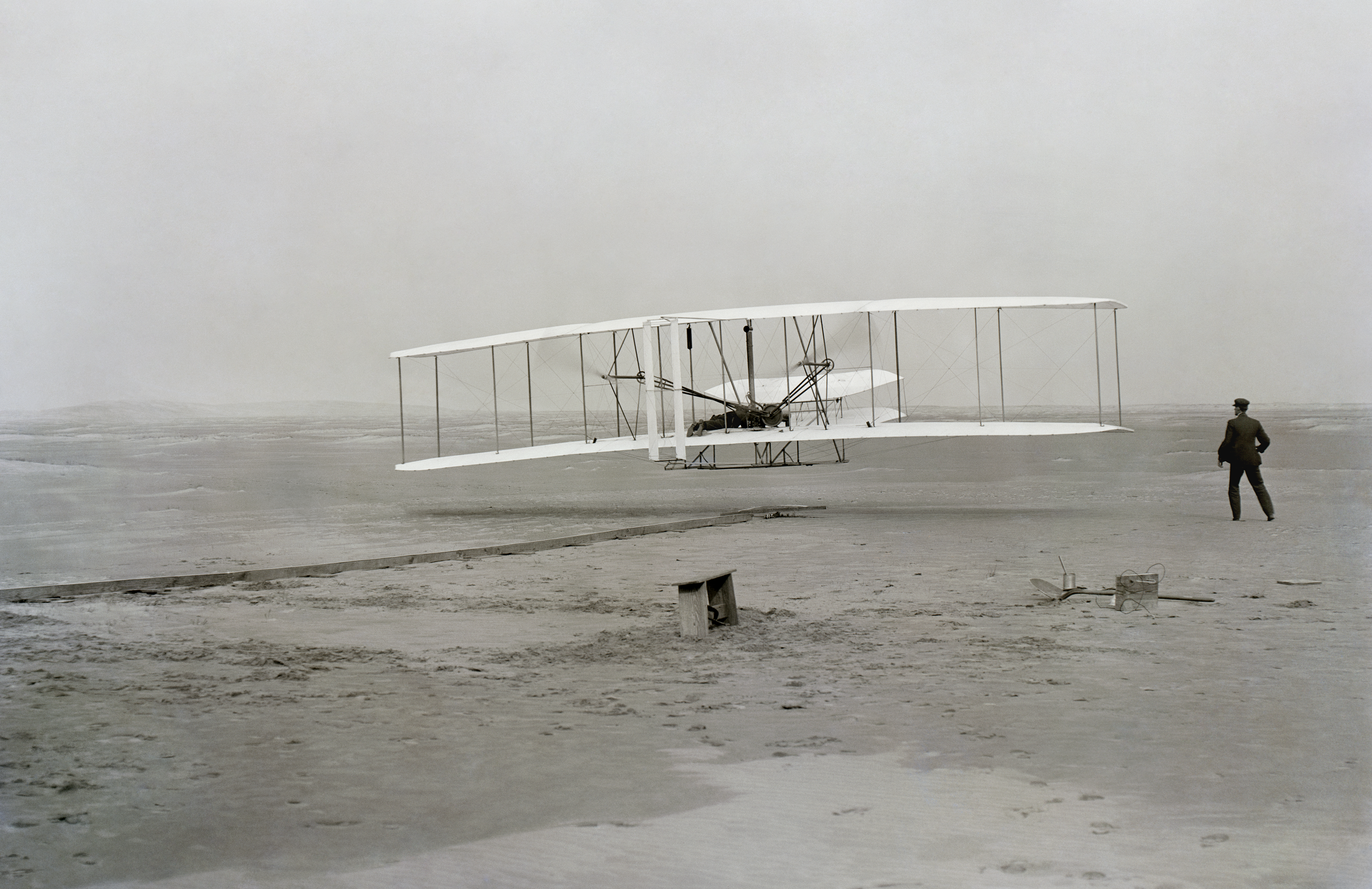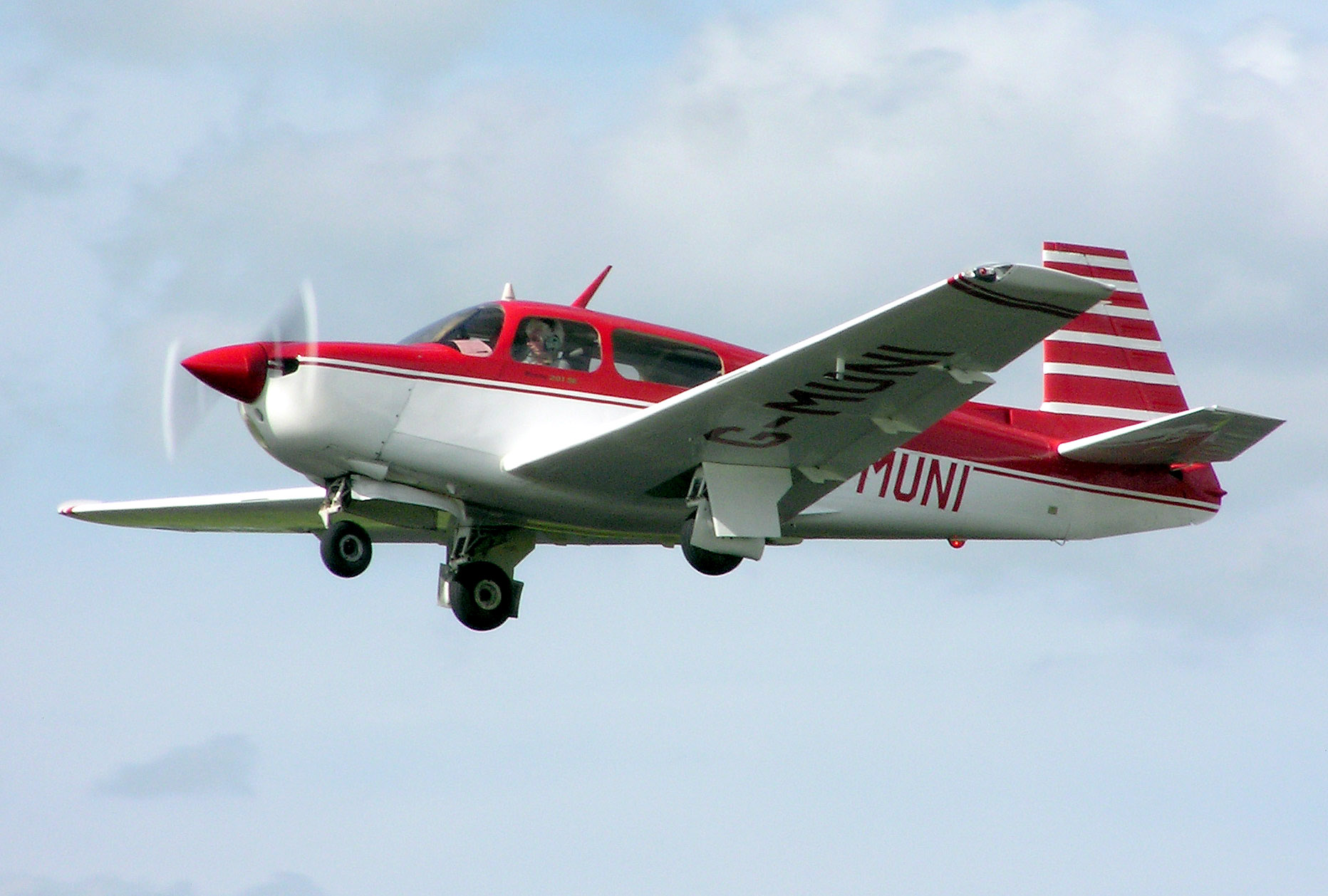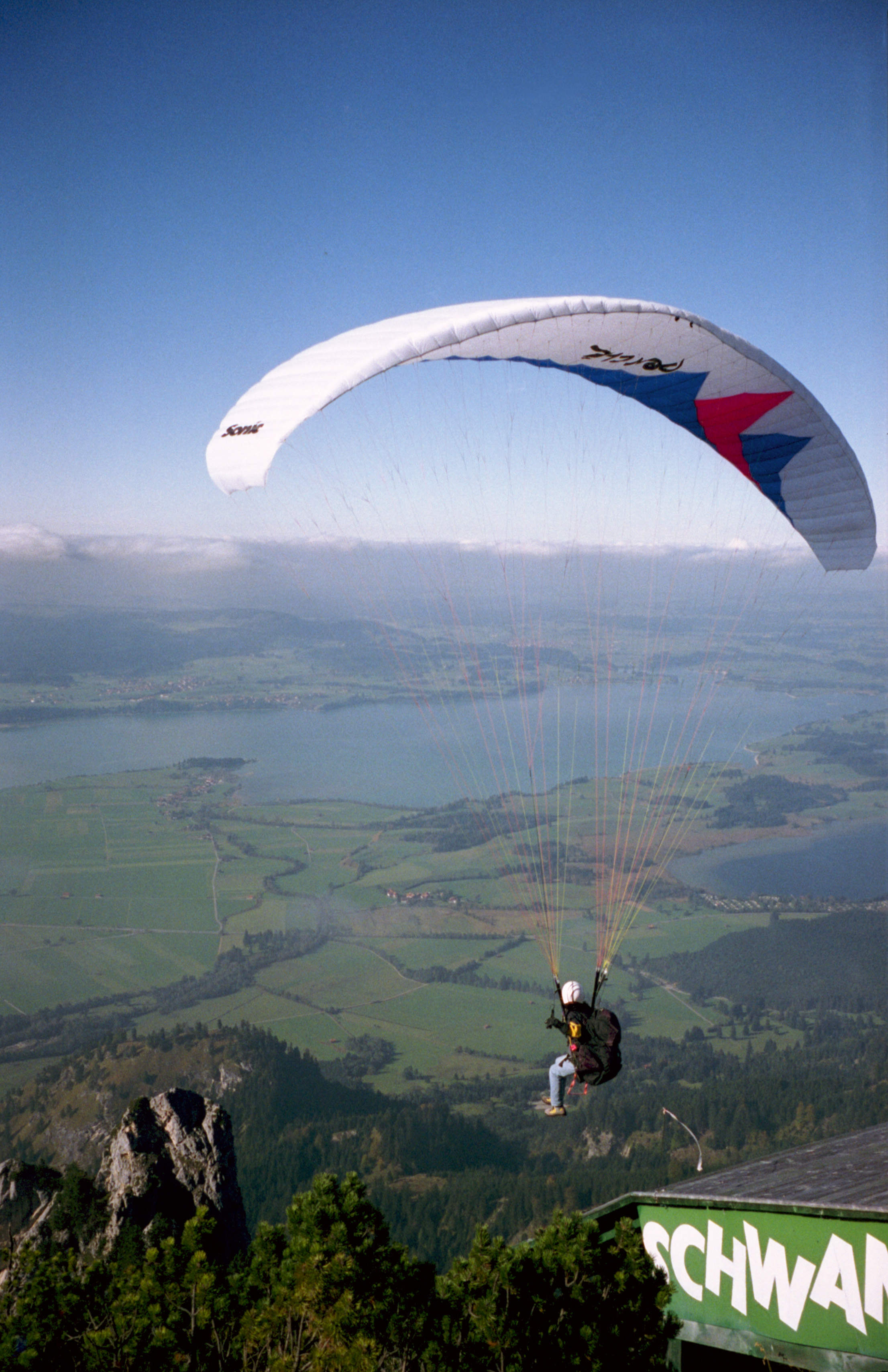|
Waspair Tomcat Sport
The Waspair HM 81 Tomcat is a British canard ultralight aircraft of unusual design, that was produced by Waspair and later Midwest Microlites. The designer is disputed and Chip Erwin, Larry Whiting and Robin Haynes are all named as designers. The aircraft was supplied as a kit for amateur construction.Cliche, Andre: ''Ultralight Aircraft Shopper's Guide'' 8th Edition, page E-28 and E-41. Cybair Limited Publishing, 2001. Design and development The aircraft was designed to comply with the US FAR 103 Ultralight Vehicles rules, including the category's maximum empty weight of . The aircraft has a standard empty weight of . It features a high-wing supported by dihedral stabilizers, a single-seat, open cockpit, tricycle landing gear and a single engine in pusher configuration In an aircraft with a pusher configuration (as opposed to a tractor configuration), the propeller(s) are mounted behind their respective engine(s). Since a pusher propeller is mounted behind the engi ... [...More Info...] [...Related Items...] OR: [Wikipedia] [Google] [Baidu] |
WikiProject Aircraft
A WikiProject, or Wikiproject, is a Wikimedia movement affinity group for contributors with shared goals. WikiProjects are prevalent within the largest wiki, Wikipedia, and exist to varying degrees within sister projects such as Wiktionary, Wikiquote, Wikidata, and Wikisource. They also exist in different languages, and translation of articles is a form of their collaboration. During the COVID-19 pandemic, CBS News noted the role of Wikipedia's WikiProject Medicine in maintaining the accuracy of articles related to the disease. Another WikiProject that has drawn attention is WikiProject Women Scientists, which was profiled by '' Smithsonian'' for its efforts to improve coverage of women scientists which the profile noted had "helped increase the number of female scientists on Wikipedia from around 1,600 to over 5,000". On Wikipedia Some Wikipedia WikiProjects are substantial enough to engage in cooperative activities with outside organizations relevant to the field at issue. For e ... [...More Info...] [...Related Items...] OR: [Wikipedia] [Google] [Baidu] |
High-wing
A monoplane is a fixed-wing aircraft configuration with a single mainplane, in contrast to a biplane or other types of multiplanes, which have multiple planes. A monoplane has inherently the highest efficiency and lowest drag of any wing configuration and is the simplest to build. However, during the early years of flight, these advantages were offset by its greater weight and lower manoeuvrability, making it relatively rare until the 1930s. Since then, the monoplane has been the most common form for a fixed-wing aircraft. Characteristics Support and weight The inherent efficiency of the monoplane is best achieved in the cantilever wing, which carries all structural forces internally. However, to fly at practical speeds the wing must be made thin, which requires a heavy structure to make it strong and stiff enough. External bracing can be used to improve structural efficiency, reducing weight and cost. For a wing of a given size, the weight reduction allows it to fly slower a ... [...More Info...] [...Related Items...] OR: [Wikipedia] [Google] [Baidu] |
Trailing Edge
The trailing edge of an aerodynamic surface such as a wing is its rear edge, where the airflow separated by the leading edge meets.Crane, Dale: ''Dictionary of Aeronautical Terms, third edition'', page 521. Aviation Supplies & Academics, 1997. Essential flight control surfaces are attached here to control the direction of the departing air flow, and exert a controlling force on the aircraft. Such control surfaces include ailerons on the wings for roll control, elevators on the tailplane controlling pitch, and the rudder on the fin controlling yaw. Elevators and ailerons may be combined as elevons on tailless aircraft. The shape of the trailing edge is of prime importance in the aerodynamic function of any aerodynamic surface. George Batchelor has written about: :“ ... the remarkable controlling influence exerted by the sharp trailing edge of an aerofoil on the circulation.”Batchelor, G. K. (1967), ''An Introduction to Fluid Dynamics'', p.438, Cambridge University Press. ... [...More Info...] [...Related Items...] OR: [Wikipedia] [Google] [Baidu] |
Cuyuna 430
The Cuyuna 430 and Cuyuna 340 are a family of two-stroke, twin-cylinder piston snowmobile engines that were redesigned to serve as ultralight aircraft powerplants.Cuyuna Development Company: ''Cuyuna Engines'', Cuyuna Development Company, undated Development While developing the Pterodactyl Pfledge flying wing ultralight in the late 1970s, designer Jack McCornack experimented with a number of possible engines. Early flights used a German-made Sachs engine, but the high exchange rate and long lead times for this engine convinced him to try other options. McCornack settled on a snowmobile engine produced by the Cuyuna Development Company as having the best potential. In 1979 he modified the engine with a crankcase extension, an additional main bearing, lowered the compression ratio using an additional head gasket and substituted a smaller Mikuni carburetor, amongst other modifications. The original snowmobile engine produced . Lowering the compression ratio not only de-rated t ... [...More Info...] [...Related Items...] OR: [Wikipedia] [Google] [Baidu] |
Fuselage
The fuselage (; from the French ''fuselé'' "spindle-shaped") is an aircraft's main body section. It holds crew, passengers, or cargo. In single-engine aircraft, it will usually contain an engine as well, although in some amphibious aircraft the single engine is mounted on a pylon attached to the fuselage, which in turn is used as a floating hull. The fuselage also serves to position the control and stabilization surfaces in specific relationships to lifting surfaces, which is required for aircraft stability and maneuverability. Types of structures Truss structure This type of structure is still in use in many lightweight aircraft using welded steel tube trusses. A box truss fuselage structure can also be built out of wood—often covered with plywood. Simple box structures may be rounded by the addition of supported lightweight stringers, allowing the fabric covering to form a more aerodynamic shape, or one more pleasing to the eye. Geodesic construction Geo ... [...More Info...] [...Related Items...] OR: [Wikipedia] [Google] [Baidu] |
Aluminum
Aluminium (aluminum in American and Canadian English) is a chemical element with the symbol Al and atomic number 13. Aluminium has a density lower than those of other common metals, at approximately one third that of steel. It has a great affinity towards oxygen, and forms a protective layer of oxide on the surface when exposed to air. Aluminium visually resembles silver, both in its color and in its great ability to reflect light. It is soft, non-magnetic and ductile. It has one stable isotope, 27Al; this isotope is very common, making aluminium the twelfth most common element in the Universe. The radioactivity of 26Al is used in radiodating. Chemically, aluminium is a post-transition metal in the boron group; as is common for the group, aluminium forms compounds primarily in the +3 oxidation state. The aluminium cation Al3+ is small and highly charged; as such, it is polarizing, and bonds aluminium forms tend towards covalency. The strong affinity towards ox ... [...More Info...] [...Related Items...] OR: [Wikipedia] [Google] [Baidu] |
Pusher Configuration
In an aircraft with a pusher configuration (as opposed to a tractor configuration), the propeller(s) are mounted behind their respective engine(s). Since a pusher propeller is mounted behind the engine, the drive shaft is in compression in normal operation. Pusher configuration describes this specific (propeller or ducted fan) thrust device attached to a craft, either aerostat (airship) or aerodyne (aircraft, WIG, paramotor, rotorcraft) or others types such as hovercraft, airboat and propeller-driven snowmobiles. "Pusher configuration" also describes the layout of a fixed-wing aircraft in which the thrust device has a pusher configuration. This kind of aircraft is commonly called a pusher. Pushers have been designed and built in many different layouts, some of them quite radical. History The rubber-powered "Planophore", designed by Alphonse Pénaud in 1871, was an early successful model aircraft with a pusher propeller. Many early aircraft (especially biplanes) were ... [...More Info...] [...Related Items...] OR: [Wikipedia] [Google] [Baidu] |
Tricycle Landing Gear
Tricycle gear is a type of aircraft undercarriage, or ''landing gear'', arranged in a tricycle fashion. The tricycle arrangement has a single nose wheel in the front, and two or more main wheels slightly aft of the center of gravity. Tricycle gear aircraft are the easiest for takeoff, landing and taxiing, and consequently the configuration is the most widely used on aircraft.Crane, Dale: ''Dictionary of Aeronautical Terms, third edition'', page 524. Aviation Supplies & Academics, 1997. Aviation Publishers Co. Limited, ''From the Ground Up'', page 11 (27th revised edition) History Several early aircraft had primitive tricycle gear, notably very early Antoinette planes and the Curtiss Pushers of the pre-World War I Pioneer Era of aviation. Waldo Waterman's 1929 tailless '' Whatsit'' was one of the first to have a steerable nose wheel. In 1956, Cessna introduced sprung-steel tricycle landing gear on the Cessna 172. Their marketing department described this as "Land-O-Matic" t ... [...More Info...] [...Related Items...] OR: [Wikipedia] [Google] [Baidu] |
Dihedral (aircraft)
In aeronautics, dihedral is the angle between the left and right wings (or tail surfaces) of an aircraft. "Dihedral" is also used to describe the effect of sideslip on the rolling of the aircraft. Dihedral angle is the upward angle from horizontal of the wings or tailplane of a fixed-wing aircraft. "Anhedral angle" is the name given to negative dihedral angle, that is, when there is a ''downward'' angle from horizontal of the wings or tailplane of a fixed-wing aircraft. Dihedral angle has a strong influence on dihedral effect, which is named after it. Dihedral effect is the amount of roll moment produced in proportion to the amount of sideslip. Dihedral effect is a critical factor in the stability of an aircraft about the roll axis (the spiral mode). It is also pertinent to the nature of an aircraft's Dutch roll oscillation and to maneuverability about the roll axis. Longitudinal dihedral is a comparatively obscure term related to the pitch axis of an airplane. It ... [...More Info...] [...Related Items...] OR: [Wikipedia] [Google] [Baidu] |
FAR 103 Ultralight Vehicles
Ultralight aircraft in the United States are much smaller and lighter than ultralight aircraft as defined by all other countries. In the United States, ultralights are described as "ultralight vehicles" and not as aircraft. They are not required to be registered, nor is the pilot required to have a pilot's certificate. United States definition of "ultralight" Regulation of ultralight aircraft in the United States is covered by the Code of Federal Regulations, Title 14 (Federal Aviation Regulations), Part 103, or ''14 CFR Part 103'', which defines an "ultralight" as a vehicle that: * has only one seat * Is used only for recreational or sport flying * Does not have a U.S. or foreign airworthiness certificate * If unpowered, weighs less than 155 pounds * If powered: ** Weighs less than 254 pounds (115 kg) empty weight, excluding floats and safety devices ** Has a maximum fuel capacity of 5 U.S. gallons (19 L) ** Does not exceed 55 knots (102 km/h; 63 mph) cali ... [...More Info...] [...Related Items...] OR: [Wikipedia] [Google] [Baidu] |
WikiProject Aircraft/page Content
A WikiProject, or Wikiproject, is a Wikimedia movement affinity group for contributors with shared goals. WikiProjects are prevalent within the largest wiki, Wikipedia, and exist to varying degrees within sister projects such as Wiktionary, Wikiquote, Wikidata, and Wikisource. They also exist in different languages, and translation of articles is a form of their collaboration. During the COVID-19 pandemic, CBS News noted the role of Wikipedia's WikiProject Medicine in maintaining the accuracy of articles related to the disease. Another WikiProject that has drawn attention is WikiProject Women Scientists, which was profiled by '' Smithsonian'' for its efforts to improve coverage of women scientists which the profile noted had "helped increase the number of female scientists on Wikipedia from around 1,600 to over 5,000". On Wikipedia Some Wikipedia WikiProjects are substantial enough to engage in cooperative activities with outside organizations relevant to the field at issue. For e ... [...More Info...] [...Related Items...] OR: [Wikipedia] [Google] [Baidu] |
Homebuilt Aircraft
Homebuilt aircraft, also known as amateur-built aircraft or kit planes, are constructed by persons for whom this is not a professional activity. These aircraft may be constructed from "scratch", from plans, or from assembly kits.Armstrong, Kenneth: ''Choosing Your Homebuilt - the one you will finish and fly! Second Edition'', pp. 39–52. Butterfield Press, 1993. Peter M Bowers: ''Guide to Homebuilts - Ninth Edition''. TAB Books, Blue Ridge Summit PA, 1984. Overview In the United States, Brazil, Australia, New Zealand and South Africa, homebuilt aircraft may be licensed Experimental under FAA or similar local regulations. With some limitations, the builder(s) of the aircraft must have done it for their own education and recreation rather than for profit. In the U.S., the primary builder can also apply for a repairman's certificate for that airframe. The repairman's certificate allows the holder to perform and sign off on most of the maintenance, repairs, and inspections themsel ... [...More Info...] [...Related Items...] OR: [Wikipedia] [Google] [Baidu] |








